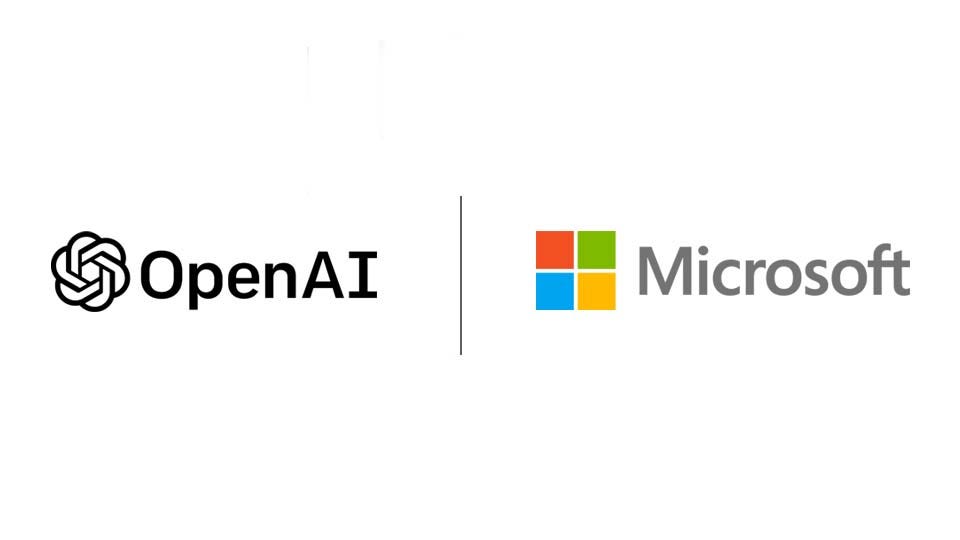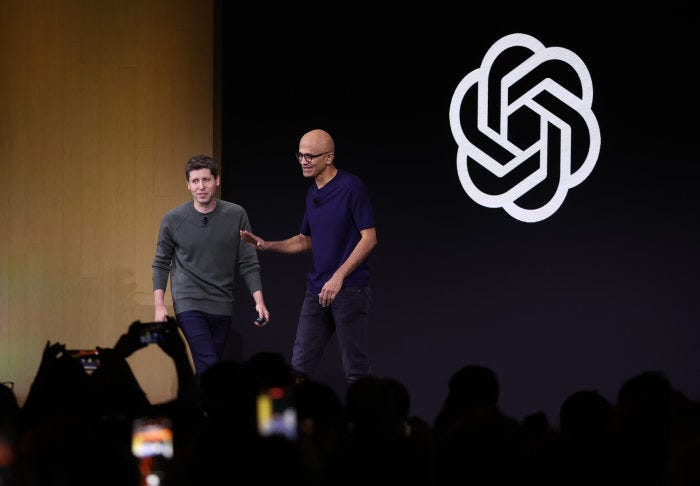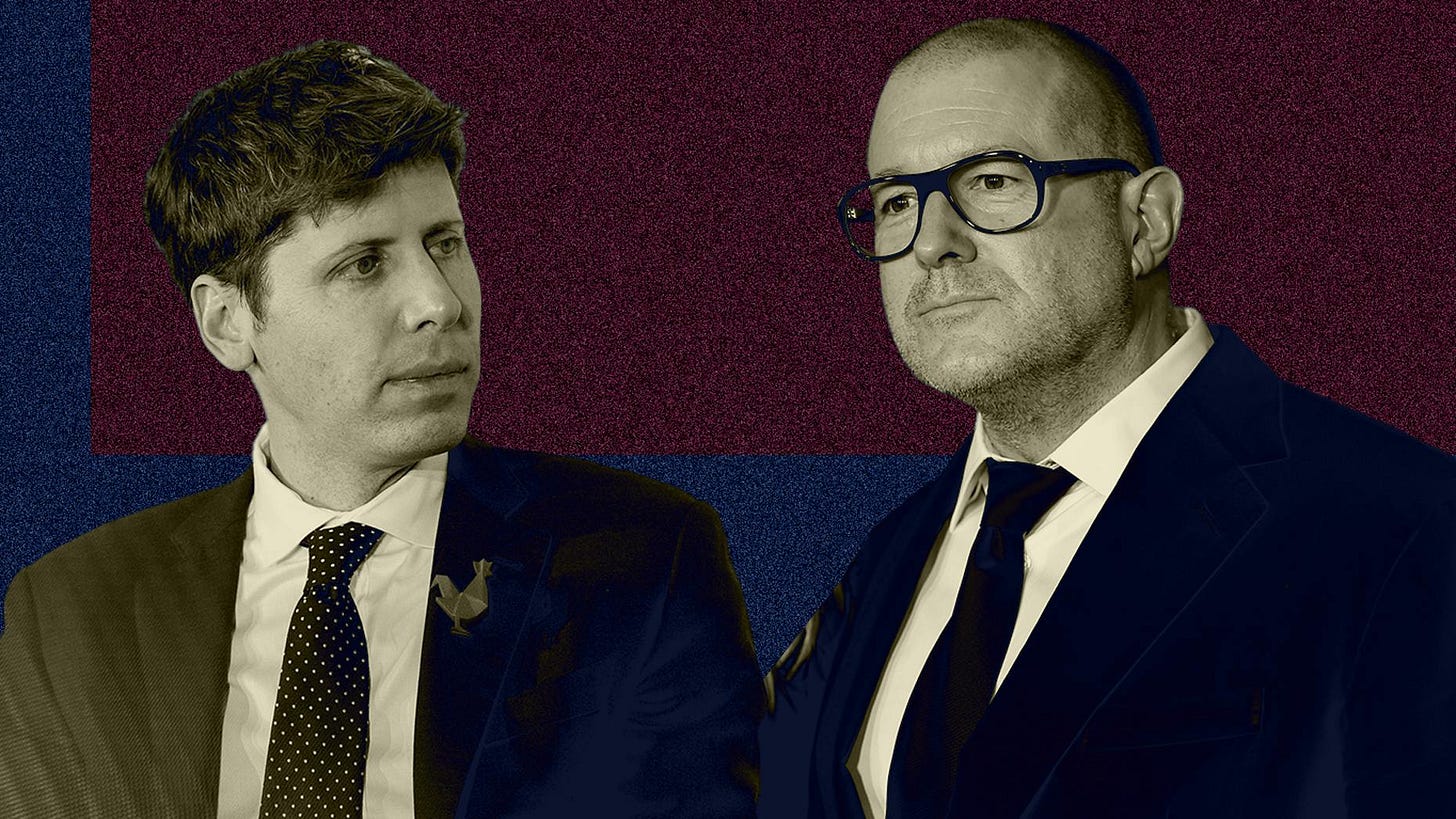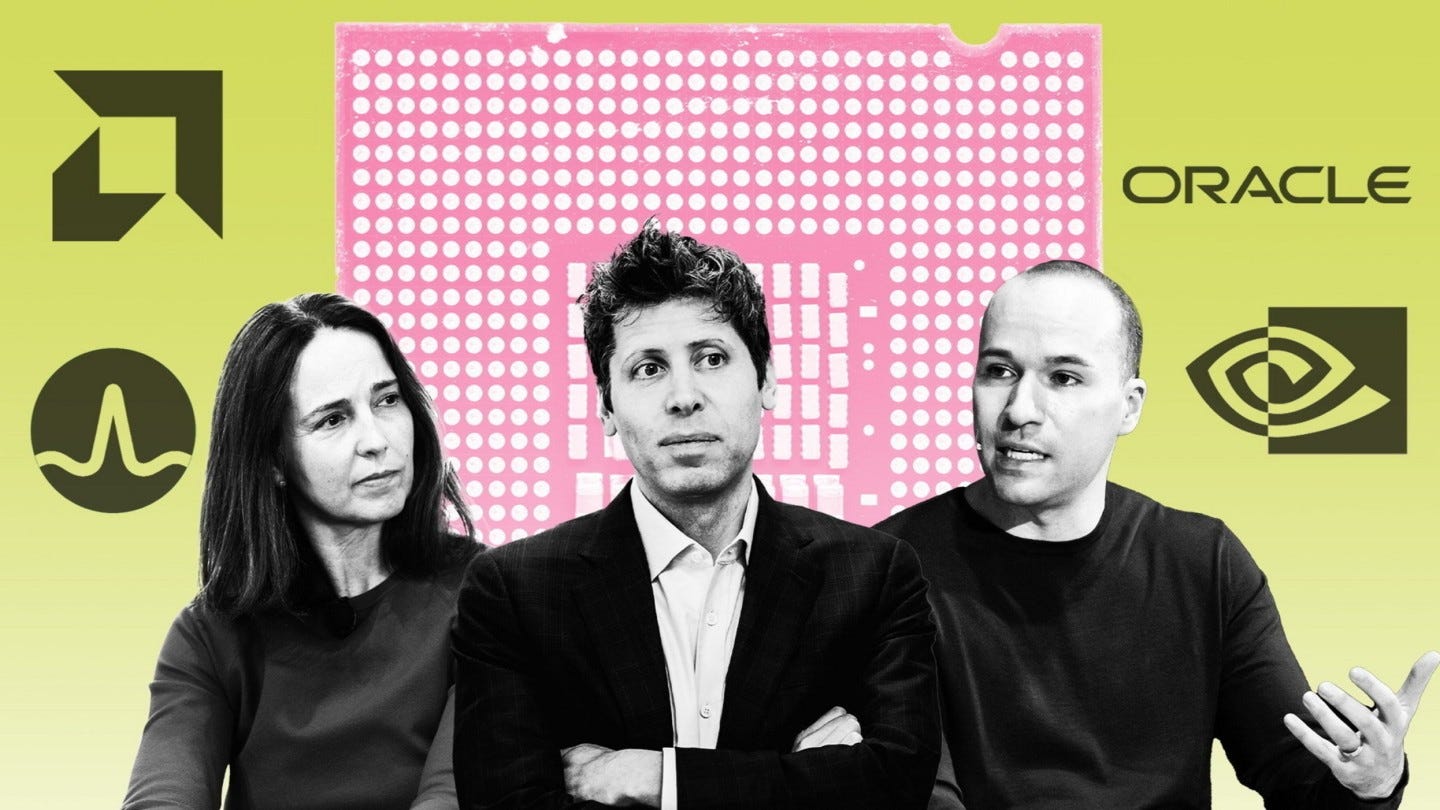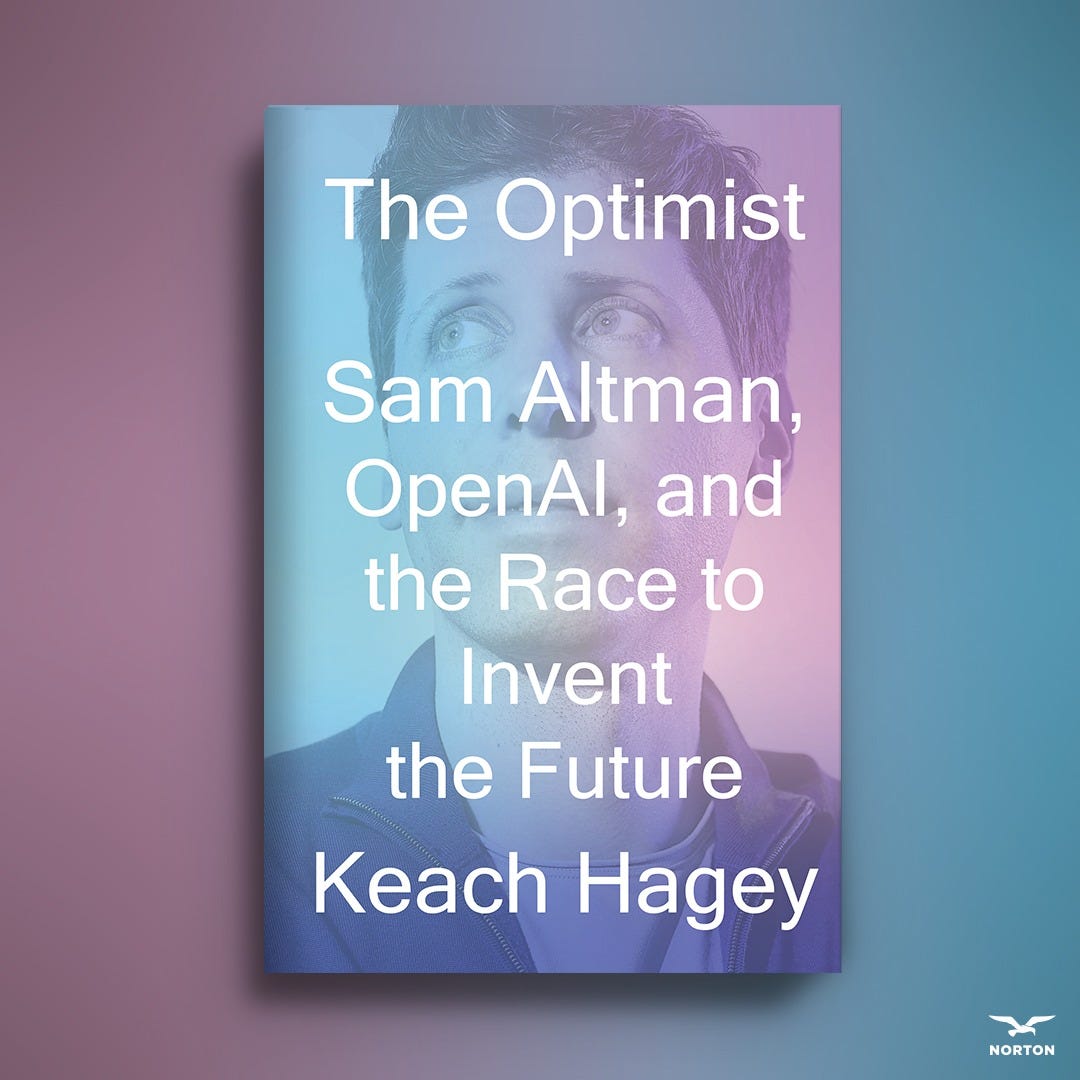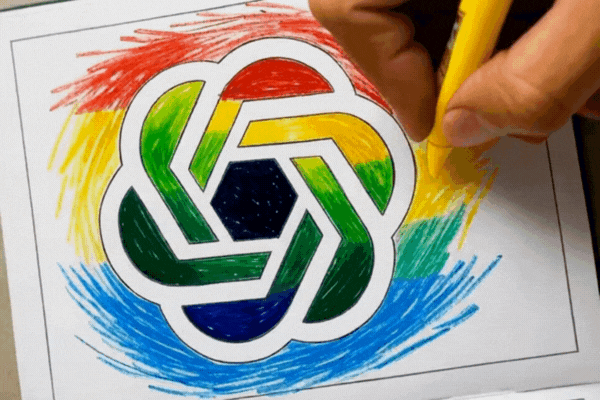
AI: OpenAI Transforms to 'For Profit' PBC. RTZ #890
A long, arduous transformation was technically sealed by OpenAI this week, redrawing many of the lines drawn since OpenAI’s creation only a decade ago.
OpenAI now transitioning to an IPO leading ‘Public Benefit Corp’ (PBC) for profit structure. AND remaking its iconic Microsoft Partnership that’s enthralled the AI world since 2019.
It’s a big milestone in these early days of the AI Tech Wave, and worth unpacking today. It’s a topic that I’ve addressed many times on AI: RTZ, outlining its gnarly issues.
Both companies’ websites detail the developments from their perspective, and they’re worth reading.
Bloomberg cuts to the chase in “OpenAI Gives Microsoft 27% Stake, Completes For-Profit Shift”:
And underlines the key takeaways:
“OpenAI is giving Microsoft Corp. a 27% ownership stake as part of a restructuring plan, with Microsoft getting a stake worth about $135 billion.
Microsoft will have access to OpenAI’s technology until 2032, including models that achieve artificial general intelligence, and will continue to receive 20% of OpenAI’s revenue until an expert panel verifies AGI.
The restructuring is now complete, with OpenAI forming a for-profit company called OpenAI Group PBC, which will be overseen by a nonprofit entity called the OpenAI Foundation.”
Some details worthing noting in particular, especially Microsoft’s access to OpenAI AI intellectual property (IP) going forward:
“Under the revised pact, Microsoft will get a stake in OpenAI worth about $135 billion, the companies said in a statement Tuesday. In addition, Microsoft will have access to the artificial intelligence startup’s technology until 2032, including models that achieved the benchmark of artificial general intelligence (AGI), a more powerful form of AI that most say does not exist yet.”
AGI is a much debated topic in the industry as I’ve discussed at length here, important in this deal because it’s a key turn-off event to Microsoft’s ongoing access to OpenAI AI technologies as it moves into a host of AI applications and services beyond core LLM AI GPT and ChatGPT products.
In particular, the new deal carves out AI ‘consumer hardware’ products from OpenAI from the Microsoft deal. That of course refers to the upcoming much speculated AI devices from OpenAI’s $6.5 billion acquisition of Jony Ives’ IO venture a few months ago.
The deal leaves 27% of the current OpenAI for Microsoft, 26% for the non-profit foundation, and the balance 47% for Investors and OpenAI People. It’s still not clear if founder/CEO Sam Altman gets any direct equity, which is an unusual set up to say the least. Especially when Elon Musk is fighting hard for a trillion dollar further stake in Tesla.
Also OpenAI is committing to a non-exclusive further usage of Microsoft’s Azure cloud platform worth $250 billion, on top of commitments to Azure and other parties of late.
And the for profit new OpenAI Group PBC, still has to pay Microsoft 20% of its revenues until AGI is reached as determined by a future independent expert panel. Likely some time before 2032. It’s a key pivot point in the redrawn deal. And will likely be hotly negotiated, contested, and possibly litigated down the road.
Overall, both parties fought hard for key items they each wanted, and got key things they wanted. Microsoft the use of OpenAI IP to 2032, with some caveats in further fine print. OpenAI to build its own Infrastructure away from Microsoft. And both companies seemed to parse out what components of future OpenAI products and new acquisitions Microsoft gets, although that’ll be clearer once more details are released. It seems both sides walked away WITHOUT some key things each side wanted, which sometimes is the hallmark of a good deal.
Bloomberg continues:
“Microsoft will also continue to be entitled to receive 20% of OpenAI’s revenue, according to people familiar with the matter, who spoke on condition of anonymity as the information is not public. But as part of the new pact, OpenAI can pay more later. In a blog post, the companies said a revenue share agreement remains in effect until an expert panel verifies AGI.”
“With the agreement, OpenAI said its corporate restructure is now complete. The company had spent much of this year working to form a more traditional for-profit company, which is considered more attractive to investors. Microsoft, which backed OpenAI with some $13.75 billion, was the biggest holdout among the ChatGPT maker’s investors, Bloomberg News has reported.”
Also important of course is the non-profit’s stake and control of OpenAI going forward:
““OpenAI has completed its recapitalization, simplifying its corporate structure,” said Bret Taylor, OpenAI’s chairman, in a statement. “The nonprofit remains in control of the for-profit, and now has a direct path to major resources before AGI arrives.”
“The restructuring had been under review by the state attorneys general of Delaware and California. In a statement, Delaware State Attorney General Kathy Jennings said her office had decided not to object to the for-profit shift after a long review process in which she and her California counterpart, Rob Bonta, urged OpenAI to give the nonprofit more control over the new for-profit entity.”
“The new for-profit unit will be a public benefit corporation called OpenAI Group PBC. It will continue to be overseen by a nonprofit entity, now dubbed the OpenAI Foundation. The nonprofit will receive a 26% equity stake in the company after the restructure, as well as a warrant that allows it to receive an undisclosed amount of additional shares in the for-profit entity, if the latter’s share price grows more than tenfold after 15 years.”
“The foundation plans to use part of its equity stake, worth roughly $130 billion at OpenAI’s current $500 billion valuation, to focus on funding work to “accelerate health breakthroughs” and to work with organizations to address some severe risks from AI, such as displacing workers and creating bioweapons.”
With those two key elements in place, OpenAI is now cleared to accelerate its unprecedented scale and scope of its plans. It’s a topic that continues to get ongoing attention going forward.
But it’s important to mark this notable milestone in this AI Tech Wave a mere 1064 days after OpenAI’s ‘ChatGPT moment’ on 11/30/22. Stay tuned.
(NOTE: The discussions here are for information purposes only, and not meant as investment advice at any time. Thanks for joining us here)


